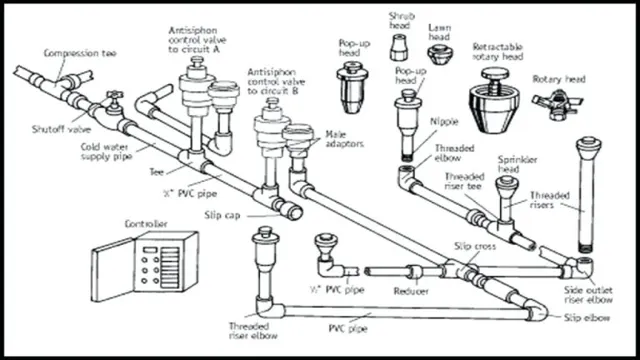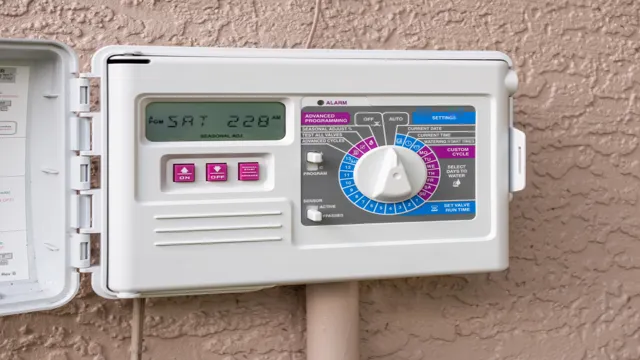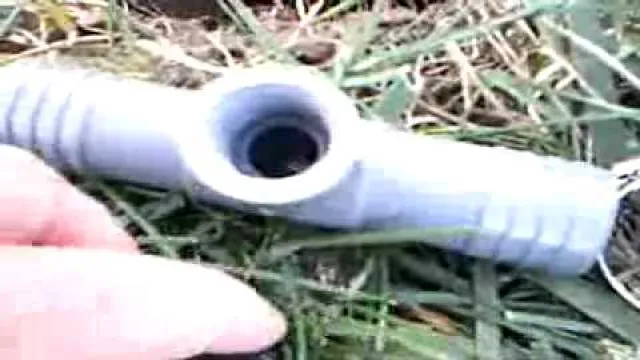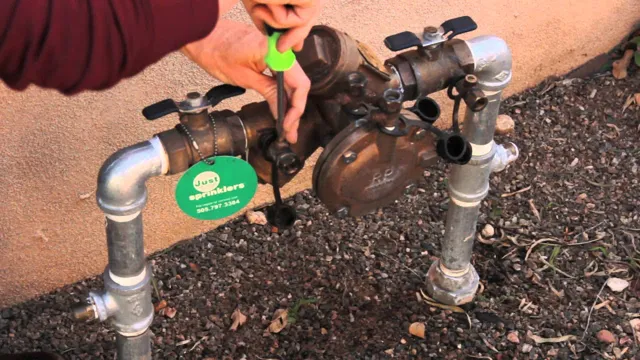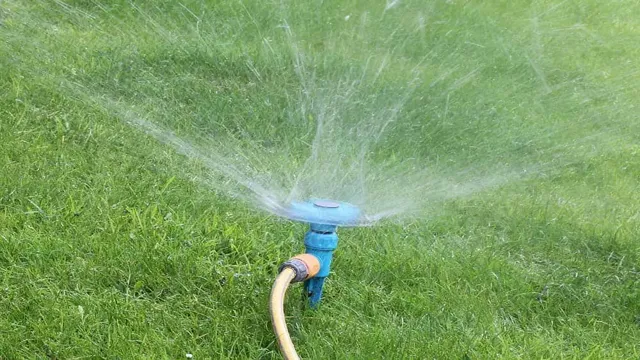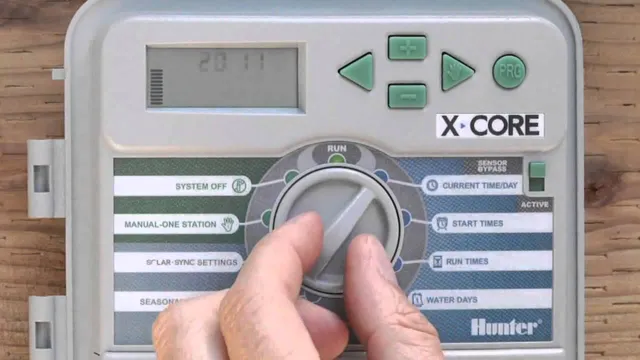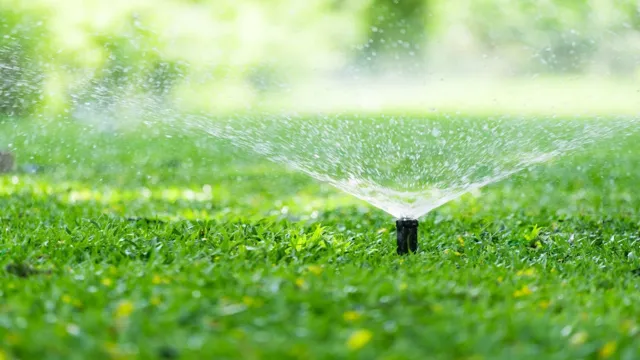What is a Hard Freeze for Sprinkler System and How to Protect Your System?

Have you ever wondered what hard freezing means for your sprinkler system? Winter weather can be harsh, and it’s essential to understand how it affects your lawn and irrigation system. Hard freezing is when temperatures drop to a point where the water in your sprinkler system freezes and expands, cracking and damaging pipes and valves. The damage from a hard freeze can be costly, leading to expensive repairs and replacing parts of the system.
Ensuring that your sprinkler system is prepared for winter is crucial to avoid hard freeze damage. Proper maintenance and winterization are necessary to prevent these expensive repairs. Winterization involves shutting off the water supply, draining the system, and blowing out any remaining water.
It’s a good idea to consult with a professional irrigation company to winterize your sprinkler system if you’re unsure about how to do it yourself. Ignoring the potential for hard freezing can lead to significant expenses down the road. Not only will you have to pay for repairs to your sprinkler system, but you’ll also likely face additional costs from lawn and landscaping damage.
Protecting your investment by taking the necessary measures to prevent a hard freeze is crucial. In summary, understanding hard freeze for your sprinkler system is essential in protecting your investment. Taking the proper steps to prepare your system for winter and prevent damage is crucial in avoiding costly repairs and landscaping damage.
Be sure to consult with a professional irrigation company to ensure that your system is ready for the winter weather.
What is a Hard Freeze?
A hard freeze is a weather condition that occurs when the temperature drops below 32°F for an extended period of time. This can pose a serious threat to your sprinkler system because the water inside the pipes can freeze and expand, causing the pipes to burst. Even a small crack or hole in the pipes can result in significant water damage to your landscaping and your home’s foundation.
To prevent this, it’s important to properly winterize your sprinkler system before the onset of freezing temperatures. This involves draining the water from the system, turning off the water supply, and insulating any exposed pipes or components. By taking these steps, you can protect your sprinkler system from the damaging effects of a hard freeze and ensure it’s ready to perform when warmer weather arrives.
Definition of a Hard Freeze
A hard freeze refers to a phenomenon where the temperature drops below 28°F for an extended period, usually several hours. This kind of freeze can be disastrous for crops, plants, and vegetation. During a hard freeze, water inside plants freezes, causing cell walls to rupture and resulting in damage or death.
Hard freezes can occur in many parts of the world, particularly those with harsh winter climates. In regions affected by hard freezes, farmers typically take steps to protect their crops, such as covering plants with blankets or using heaters and other heating equipment. Organisms living in the soil are also affected by hard freezes.
The frozen water can cause soil expansion, which may damage underground cables and pipes. Hence, it is essential to be cautious and prepared for extreme cold temperatures, particularly hard freezes, to avoid the negative consequences they can bring.
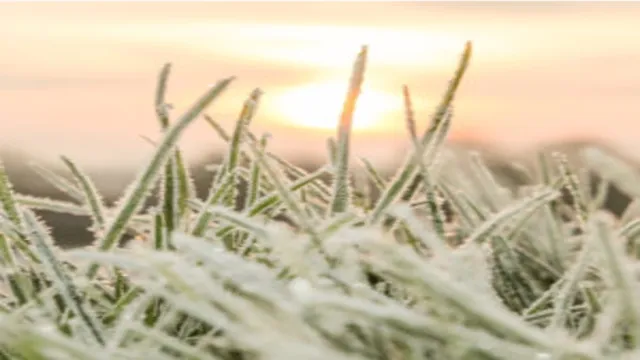
How Does It Affect Sprinkler Systems?
A hard freeze is an extreme drop in temperature that could impact the proper functioning of sprinkler systems. When the temperature goes below 32 degrees Fahrenheit, water left inside the sprinkler heads and piping can freeze and expand, causing the pipes to burst or crack. This can then lead to expensive repairs and replacements that can be frustrating for homeowners or property managers.
Sprinkler systems installed above ground are more susceptible to freezing than underground systems. To avoid such damages, regular maintenance and winterization of the sprinkler system are essential before the hard freeze sets in. It is best to drain all the water out of the sprinkler system, shut off the main valve, disconnect the sprinkler timer and cover the backflow preventer with proper insulation.
Doing so will protect your sprinkler system and help ensure that it functions properly when the warmer weather returns.
Signs of Hard Freeze Damage
If the temperature drops drastically below freezing, you may experience a hard freeze that can damage your sprinkler system if not adequately protected. Signs of hard freeze damage include brittle or broken pipes, damaged sprinkler heads, and leakages. Sometimes, the damage is not immediately noticeable, and you may only realize it when you turn on your sprinkler after winter.
A hard freeze can cause significant damage to your sprinkler system if proper precautions are not taken. To prevent hard freeze damage, ensure that any exposed pipes are insulated or wrapped in heat tape. Additionally, drain your sprinkler system and shut off the water supply before the cold weather sets in.
Taking necessary precautions will not only protect your sprinkler system but also save you from costly repairs.
Cracked Pipes and Fittings
One of the most common problems that homeowners face during winter is burst pipes due to hard freeze damage. Burst pipes and cracked fittings can lead to costly repairs and serious water damage to your home. If you notice a decrease in water pressure, discolored water, or wet spots on your walls or ceilings, it may be a sign of a damaged pipe.
Additionally, if you hear unusual sounds coming from your plumbing system or your water bill has suddenly spiked, you could have a leak. The best way to prevent freeze damage to your pipes is to insulate them properly and keep them warm during the winter months. If you suspect any damage, it’s important to call a professional to inspect and repair the issue promptly.
Don’t wait until it’s too late to address potential freeze damage, as it could result in even more extensive and costly repairs down the road. Stay proactive and keep an eye out for any signs of trouble.
Water Pressure Issues
Water pressure is essential for everyday tasks like washing dishes, taking a shower, or even filling up a glass of water. But, sometimes, homeowners may notice a sudden change in their water pressure, indicating an underlying problem. One sign of such an issue is hard freeze damage.
This happens when water freezes inside pipes, causing them to expand, and eventually crack. As a result, homeowners may notice a decrease in water pressure or even a complete loss of water flow. Additionally, they may also hear strange noises coming from their plumbing system.
It’s crucial to address this issue immediately, as it can lead to further damage and more costly repairs. If you suspect hard freeze damage, consider contacting a professional plumber to assess the situation and provide necessary repairs. Overall, keeping an eye out for changes in water pressure can help avoid potential plumbing problems and ensure a steady flow of water in your home.
Leaks and Unusual Water Flow
As the temperatures drop during winter, it’s important to keep an eye out for signs of hard freeze damage to your pipes and plumbing. Leaks and unusual water flow can indicate that your pipes have been damaged by freezing temperatures. When water freezes, it expands and puts pressure on the walls of your pipes, leading to cracks and leaks.
To avoid costly repairs, be sure to properly insulate your pipes and keep a close eye on any changes in water flow. It’s better to catch any damage early on before it gets worse. Think of it like a crack in a windshield – if you catch it early, you can fix it before it shatters completely.
So, keep your eyes peeled for any unusual water behavior and take action as soon as you notice a problem.
Preventing Hard Freeze Damage
A hard freeze is a term used to describe a severe drop in temperature that can potentially damage a sprinkler system. When the temperature drops below freezing point for an extended period, the water inside the sprinkler pipes can freeze and expand, causing the pipes to burst. To prevent hard freeze damage, it’s essential to winterize your sprinkler system by draining all the water inside and blowing compressed air through the pipes to remove any remaining moisture.
Additionally, covering the exposed surface of the sprinkler heads can help protect them from freezing temperatures. By taking preventive measures, you can avoid costly damages and ensure that your sprinkler system operates efficiently once the spring season arrives. Remember, a little bit of preparation can go a long way in protecting your investment and maintaining your landscape’s health.
Winterize Your Sprinkler System
If you live in a region where the temperature drops below freezing during winter, it’s essential to winterize your sprinkler system to prevent hard freeze damage. Hard freeze damages can cause cracked pipes, broken valves, and other costly repairs, so it’s crucial to take the necessary steps to protect your irrigation system. To start, you’ll need to turn off the water supply and open all the valves to let the water drain out of the sprinkler system.
Next, use an air compressor to blow any remaining water out of the pipes and sprinkler heads. Disconnect all the hoses and store them in a dry place to prevent water from freezing inside them. Finally, cover your backflow preventer with a thermal-insulated cover to prevent it from freezing.
Winterizing your sprinkler system may seem like a daunting task, but it’s worth the time and effort to prevent hard freeze damage and keep your irrigation system functioning well.
Insulate Exposed Pipes
Insulating exposed pipes is an essential step in preventing hard freeze damage during winter. As temperatures drop, water in pipes can freeze and cause the pipes to burst, leading to costly repairs and water damage. Insulation for exposed pipes can come in various forms, such as pipe sleeves, foam insulation, or heat tape.
It’s essential to choose the right insulation for the type of pipes because different materials have different insulation requirements. Insulating your pipes not only protects them from damage, but it also helps maintain water temperature, which can lead to energy savings and lower utility bills. So, to protect your home against the harsh winter weather, don’t forget to insulate your exposed pipes properly, and reap the benefits of having a warm and safe environment.
Monitor Weather Conditions
As a homeowner, one of the best ways to prevent hard freeze damage is by being vigilant about the weather conditions. Keep an eye on the temperature and weather forecasts on a regular basis to ensure that you are prepared for any sudden cold snaps. It’s also important to inspect your home’s exterior, including pipes, roofing, and insulation, and make any necessary repairs or upgrades to provide adequate protection against freezing temperatures.
Don’t forget to take extra precautions during particularly harsh weather events, such as covering outdoor faucets and wrapping exposed pipes in insulation. By monitoring the weather and taking proactive measures, you can help prevent costly damage to your home and avoid the headaches that come with dealing with frozen pipes and other hard freeze-related issues.
Conclusion
In summary, a hard freeze for a sprinkler system is like an icy straitjacket that can freeze pipes, burst connections, and cause headaches for homeowners. It’s the winter’s way of reminding us that even the most reliable and resilient systems can falter when faced with extreme temperatures. So, as the mercury dips down and the snow accumulates, let’s take a moment to appreciate the hardy sprinkler systems that keep our lawns lush and our gardens blooming all summer long – even if they do need a little extra TLC during the colder months.
“
FAQs
What is a hard freeze for a sprinkler system?
A hard freeze is a weather condition where temperatures drop below freezing for an extended period of time, causing water inside the sprinkler system to freeze and potentially damage the system.
Can a hard freeze damage a sprinkler system?
Yes, a hard freeze can damage a sprinkler system by causing water in the pipes to freeze and expand, potentially causing pipes to burst and other components to crack or break.
How can I prevent my sprinkler system from being damaged by a hard freeze?
To prevent damage from a hard freeze, you can winterize your sprinkler system by draining the water from the pipes, shutting off the water supply, and insulating exposed pipes and components.
What are common signs of damage to a sprinkler system caused by a hard freeze?
Common signs of damage to a sprinkler system caused by a hard freeze include cracked or broken pipes, damaged valves or sprinkler heads, and leaks or low water pressure.
When should I winterize my sprinkler system to protect it from a hard freeze?
It’s recommended to winterize your sprinkler system before the first hard freeze of the season, typically in late fall or early winter.
Can I winterize my sprinkler system myself, or should I hire a professional?
While it’s possible to winterize your sprinkler system yourself, it’s often recommended to hire a professional to ensure all components are properly drained and insulated to prevent damage from a hard freeze.
How much does it cost to repair a sprinkler system damaged by a hard freeze?
The cost of repairing a sprinkler system damaged by a hard freeze will depend on the extent of the damage and the cost of replacement parts, but it can range from a few hundred to a few thousand dollars.

